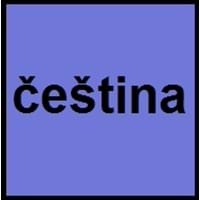Czech and Galician
Countries
Czech Republic, European Union
Galicia
National Language
Czech Republic
Galicia
Second Language
Not spoken in any of the countries
Not spoken in any of the countries
Speaking Continents
Europe
Europe
Minority Language
Austria, Croatia, Germany, Slovakia
Not spoken in any of the countries
Regulated By
Institute of the Czech Language
Royal Galician Academy (Real Academia Galega)
Interesting Facts
- The Czech language was known as Bohemian as early at 19th century.
- In czech language, there are many words that do not contain vowels.
- In Galician language, there are no compound tenses.
- The earliest document in Galician language was written in 1228 which was legal charter for a municipality of Galicia.
Similar To
Polish, Slovak and Sorbian
Portuguese Language
Derived From
Not Available
Latin
Alphabets in
Czech-Alphabets.jpg#200
Galician-Alphabets.jpg#200
Writing Direction
Left-To-Right, Horizontal
Left-To-Right, Horizontal
Language Levels
Not Available
Time Taken to Learn
Not Available
How Are You?
Jak se máš?
Que tal estás?
Good Night
dobrou noc
Boas noites
Good Evening
dobrý večer
Boa tarde
Good Afternoon
dobré odpoledne
Boa tarde
Good Morning
dobré ráno
Bos días
I Love You
Miluji tě
Ámote
Excuse Me
promiňte
Perdoe!
Dialect 1
Chod
Eastern Galician
Where They Speak
Chodsko, Bohemia
East Galicia
Dialect 2
Lach
Central Galician
Where They Speak
Czech Silesia, Hlucin, Northeast Moravia
Central Galicia
Dialect 3
Moravian
Western Galician
Where They Speak
Czech Republic, Czech Silesia, Moravia, Slovakia
West Galicia
How Many People Speak
Not Available
Speaking Population
Not Available
Native Name
čeština / český jazyk
Galego
Alternative Names
Bohemian, Cestina
Galego, Gallego
French Name
tchèque
galicien
German Name
Tschechisch
Galicisch
Pronunciation
Not Available
[ɡaˈleɣo]
Ethnicity
Czechs
Not Available
Origin
9th Century
c. 1175
Language Family
Indo-European Family
Indo-European Family
Subgroup
Slavic
Not Available
Branch
Western
Not Available
Early Forms
Proto-Czech, Old Czech
Medieval Galician
Standard Forms
Standard Czech
Galician
Language Position
Not Available
Signed Forms
Czech Sign Language
Not Available
Scope
Individual
Individual
ISO 639 6
Not Available
Not Available
Glottocode
czec1258
gali1258
Linguasphere
53-AAA-da
51-AAA-ab
Language Type
Living
Living
Language Linguistic Typology
Not Available
Not Available
Language Morphological Typology
Fusional, Synthetic
Not Available
All Czech and Galician Dialects
Most languages have dialects where each dialect differ from other dialect with respect to grammar and vocabulary. Here you will get to know all Czech and Galician dialects. Various dialects of Czech and Galician language differ in their pronunciations and words. Dialects of Czech are spoken in different Czech Speaking Countries whereas Galician Dialects are spoken in different Galician speaking countries. Also the number of people speaking Czech vs Galician Dialects varies from few thousands to many millions. Some of the Czech dialects include: Chod, Lach. Galician dialects include: Eastern Galician , Central Galician. Also learn about dialects in South American Languages and North American Languages.
Czech and Galician Speaking population
Czech and Galician speaking population is one of the factors based on which Czech and Galician languages can be compared. The total count of Czech and Galician Speaking population in percentage is also given. The percentage of people speaking Czech language is 0.15 % whereas the percentage of people speaking Galician language is Not Available. When we compare the speaking population of any two languages we get to know which of two languages is more popular. Find more details about how many people speak Czech and Galician on Czech vs Galician where you will get native speakers, speaking population in percentage and native names.
Czech and Galician Language Codes
Czech and Galician language codes are used in those applications where using language names are tedious. Czech and Galician Language Codes include all the international language codes, glottocodes and linguasphere.





